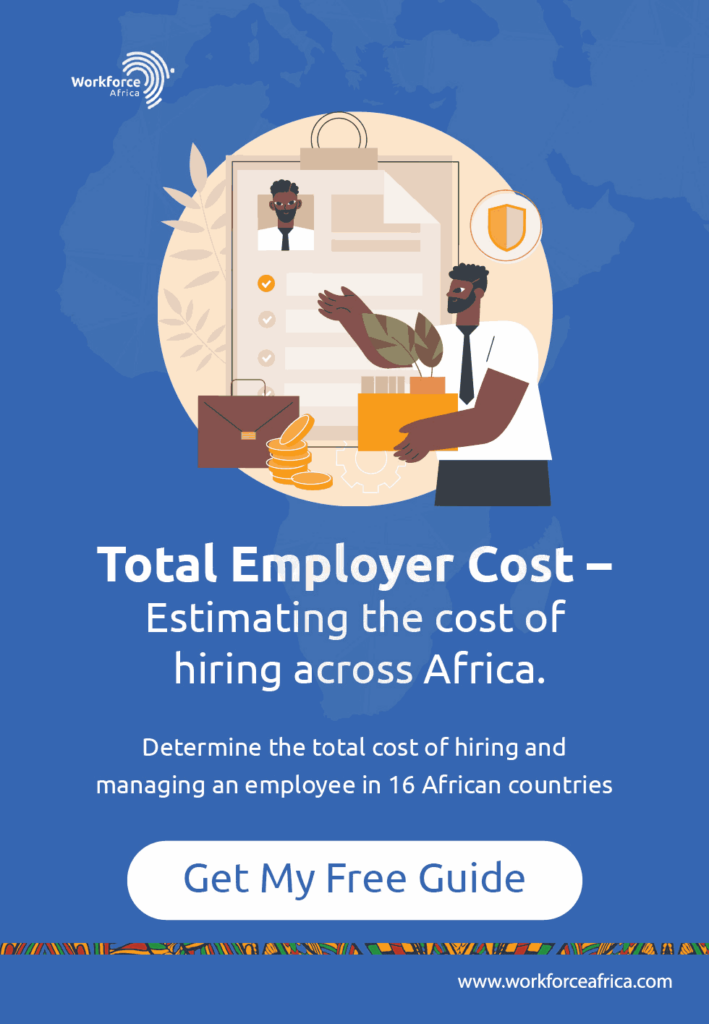

Employee compensation is crucial to top talent retention, which explains why benefits and compensation plans are critical to organisational success.
This article digs into employee perks in Nigeria, examining the many benefits, clarifying their significance, and providing insights into how businesses can strategically utilise them to obtain a competitive edge.
In today's competitive employment market, attracting and holding onto top talent is essential for the success of any organisation. One critical factor that plays a pivotal role in this regard is the provision of attractive employee benefits.
We cannot overstate the importance of employee compensation in Nigeria as they contribute to employee satisfaction and play a vital role in enhancing productivity and fostering a positive work culture.
In this article, we will delve into the world of employee compensation in Nigeria, exploring the types, importance, and how organisations can leverage them to gain a competitive edge.
Anyone residing in Nigeria who works is eligible for benefits. This also includes foreign nationals who, except for pension, have the same benefits and rights as Nigerian citizens.
Both professionals and workers in Nigeria are categorised as beneficiaries of employment offerings in Nigeria. Professionals often work in fields like medicine, law, and accounting that require extensive education and training.
They frequently possess a strong sense of morality and accountability and are expected to conduct themselves professionally.
Workers in Nigeria are in professions like factory work, retail sales, and food service that only require a little education or training.
Even though they may not have the same expertise or education as professionals, they are nonetheless vital to the economy and are entitled to employee compensation packages.
However, employees must fulfil specific criteria to qualify for these perks. For instance, they must have been employed for at least a year to be eligible for paid annual leave.
Additionally, female workers in Nigeria must have worked for the organisation for at least six months to qualify for maternity leave.
Employee compensation in Nigeria are an investment in the success of your company, not just an expense. In Nigeria, there are both mandatory and voluntary benefits that employers must provide to their employees.
The mandatory employee compensation and benefits in nigeria are:
Nigeria's monthly minimum wage is 30,000 NGN.
Paid time off, including annual leave, sick leave, maternity leave and public holidays, is a crucial employee benefit. It allows them to maintain work-life balance, recharge, and address personal and family needs.
In Nigeria, employees are entitled to 12 days of paid annual leave; 12 days of paid sick leave; female employees are entitled to 12 weeks of paid maternity leave and male employees are entitled to 3 days of paid paternity leave.
For many Nigerians, access to high-quality healthcare is a major challenge. Providing comprehensive health insurance to employees can alleviate this concern and contribute to their overall well-being.
Many organisations in Nigeria offer health insurance packages that cover hospitalisation, doctor visits, and sometimes even dental and optical care.
The National Pension Commission (PenCom) regulates pension schemes in Nigeria. Employers are required to contribute 10% percentage of employee salaries into a pension fund. The regulation ensures that employees have financial security after retirement.
Employers may be required to provide life insurance to their employees. The dependents of the employees who die while in employment are entitled to compensation.
The voluntary benefits are:
These programs promote physical and mental well-being among employees. They can include fitness classes, stress management workshops, and access to counselling services
In the wake of the COVID-19 pandemic, flexible work arrangements have gained immense importance. Many organisations now provide choices like remote work or flexible hours to accommodate the needs of employees.
In congested cities like Lagos, transportation allowances can significantly reduce the financial burden on employees. Some companies also provide housing allowances or accommodation for employees needing to relocate.
Many Nigerian companies support employees' professional growth by offering academic assistance, including sponsoring courses, certifications, or degree programs.
This also known as 13th salary.
Competitive benefits can make an organisation more appealing to job seekers. It not only helps in recruiting top talent but also plays a critical role in retaining skilled employees.
Employees who feel valued and well taken care of tend to be more satisfied and motivated. This sense of belonging, in turn, leads to increased productivity and better job performance.
Ensuring your organisation complies with Nigerian labour laws, especially pension contributions and health insurance, is essential to avoid legal issues.
High employee turnover can be costly for businesses. Organisations can reduce turnover and save on recruitment and training expenses by providing attractive benefits.
A reputation for providing excellent benefits can enhance an organisation's brand, making it more appealing to potential employees and clients.
Customise Benefits
Tailor employee benefits to your workforce's specific needs and preferences. Conduct surveys or hold discussions to understand what matters most to your employees.
Communication is Key
Ensure that employees are well-informed about the benefits offered. Clear communication can help employees appreciate the value of these benefits.
Regular Review and Adaptation
Employee needs change over time. Regularly review your benefits package and make adjustments as necessary to stay competitive.
After you have determined how many perks your employees in Nigeria will receive. Things could start to become challenging at this point.It can start to feel a little overwhelming managing these entitlements and understanding employee stock options.
This is why delegating the grunt work to an EOR like Workforce Africa is a brilliant idea.
Our employer of record (EOR) service, in particular, enables you to effortlessly and efficiently handle all the intricacies of your Nigerian operation, including Managing leave and payroll, tax distribution on local employment, maintaining statutory benefit compliance, and scaling your team.
Employee compensation in Nigeria are an investment in the success of your company, not just a cost. They are a powerful tool for attracting, retaining, and motivating employees.
You can establish a vibrant and competitive workplace that supports employee satisfaction and ultimately helps the success of your firm by providing a comprehensive benefits package that corresponds with the needs and expectations of your staff.
In Nigeria's dynamic business landscape, employee benefits are more than just perks – they are a strategic imperative.
Schedule a free consultation here or
reach out to us for how to implement a favorable employee benefits system for your remote teams in Nigeria.